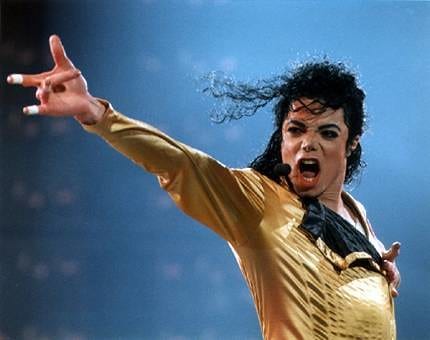On the tenth anniversary of “King of Pop” Michael Jackson’s death, we examine the inevitable question of whether we should continue celebrating the singer’s legacy in light of the documentary, Leaving Neverland’s. Prior to the release of the four-hour documentary, the Jackson Estate filled a lawsuit of more than $100 million against HBO, the producers of Leaving Neverland.
The estate alleged HBO had ignored a previous non-disparagement clause, that was part of a contract made over two decades in 1992. The contract prevented HBO from airing a film produced at a Bucharest concert for Jackson’s Dangerous tour and having stuck by the contract and not aired the film, HBO have dismissed any claims of making disparaging comments against Jackson.
Leaving Neverland portrays an account of sexual abuse, centering around two alleged victims, Wade Robson and Jimmy Safechuck, narrating their experience, putting to bed erroneous accusations against them and Michael Jackson. Leaving Neverland additionally speaks to the victims’ family members to locate concrete answers as to how the abuse all began.The shrouded claims of sexual abuse that have persisted throughout Michael Jackson’s career, were originally brought to public attention by Jordan Chandler, a thirteen-year-old boy. Gavin Arvizowas another earlier victim, who spent his teenage years accusing Jackson of molesting him, though Jackson was acquitted of all charges in a 2005 trial, involving Jordan Chandler as well.
Michael Jackson’s “grooming process”
Regardless of the acquitted status of earlier allegations, Leaving Neverland compels viewers to revisit the original allegations with its detailed depiction of the “grooming process” involving Robson and Safechuck. The details provided by the duo align with the first two allegations: endless gifts, the form of sex used in the abuse and a swift dismissal once hitting puberty. In the documentary, Jimmy Safechuck informs the camera that Jackson had staged a pretend wedding ceremony when he was aged ten and holds up a diamond and gold ring as evidence. The ring was supposed to represent a declaration of their lifelong commitment to each other. Robson added these gifts of love were common and Michael played into their childhood vulnerability by telling them, these were bonds outsiders would not be able to understand and would send them to prison for, if they knew.
Who is to blame?
Similarly, the families of the boys were presented with gifts, from holidays and expensive jewellery to new homes and cars. The gifts prevented suspicion from being aroused, and the families even hoped the boys’ careers in the future would benefit from Michael’s attention. The public adoration of Jackson from chart-topping successes such as Thriller and Bad convoluted the perception of blame. The documentary shares a remark from TMZ, where a commentator declares Robson should instead of suing the Jackson’s estate, sue his mother for allowing him to sleep in Jackson’s bed. In addition to the parents of Robson and Safechuck being blamed, both boys were accused of lying and mirroring the stories of earlier allegations for their own gain.
Wade Robson’s father, Dennis Robson, informed Vanity Fair in 1993 that he feared losing his son if he spoke out against Jackson and admitted to being molested during his childhood, himself. Plagued by the guilt following his son’s molestation, Dennis Robson committed suicide in 2002 and four months after Jackson’s death, the father of Jordan Chandler, Evan Chandler shot himself in 2009. Presented at the acquitted 2005 trial, Jordan Chandler also held the most incriminating evidence for allegations of abuse with his drawings of Jackson’s penis marking exactly areas of vitiligo or skin discolouration.
The tenth anniversary of Michael Jackson’s death makes the subject of blame more relevant, as fans of Jackson refute any blame on Michael’s part. For the first time, TV tributes for Jackson have not been aired in light of the documentary’s release this year. It cannot be denied that elements of Jackson’s music and choreographies were held as cultural icons and still hold influence; however, we cannot reject or shift blame to put ourselves at ease. Post-Leaving Neverland, listening to Michael’s music or dancing to his videos are all choices to be made by the individual.
Alongside blame, the other question Leaving Neverland forces us to consider is, if art can be separated from the artist.
See also:
Teen Actress Thalia Tran On Preparing For “Little”


